We explore the life of Nelson Mandela, and the ideals he pursued. In addition, we discuss his main characteristics and death.
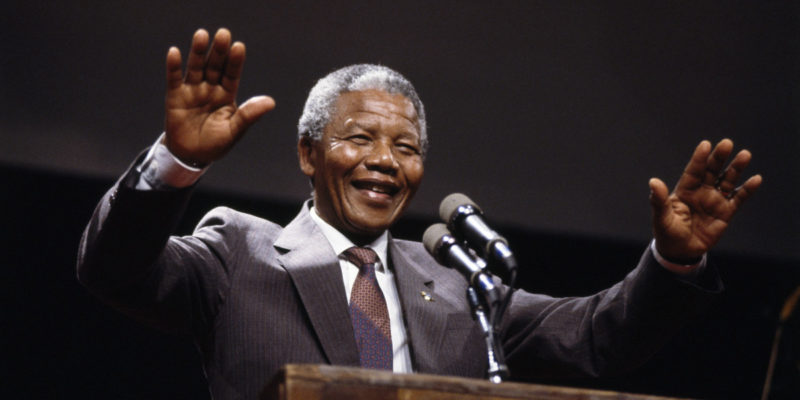
Who was Nelson Mandela?
Nelson Mandela, known by his clan name, Madiba, was a South African politician, lawyer, and anti-apartheid activist who governed South Africa from 1994 to 1999, becoming the first black president to take office through free and universal elections.
His government concentrated on systematically dismantling a racist, segregationist, and intolerant state established by the so-called apartheid, which had been officially, legally, and openly in force since 1948, though unofficially it had existed since the 19th century.
Under this system, the black majority was kept on the sidelines in matters of social rights and political representation, in favor of the white South African minority accounting for 21% of the population, particularly the ultra-conservative sectors descendants of Dutch settlers, called Afrikaners.
Mandela is regarded as one of the greatest social and political leaders of all time, especially as a leader during his presidency, fostering national reconciliation and overcoming racial hatred and desire for revenge.
He was imprisoned for 27 years by apartheid, accused of treason charges for being an activist in the struggle for racial rights and for his association with the South African Communist Party.
- See also: Che Guevara
Biography of Nelson Mandela
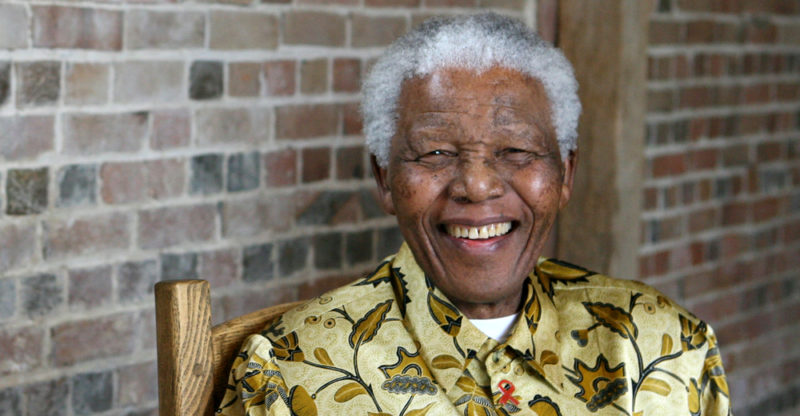
Nelson Mandela was born in Mvezo, Union of South Africa, on July 18, 1918. He came from the Xhosa ethnic group and the Thembu, a royal house that ruled the territory (Thembuland or Tamboekie) until its incorporation into Cape Colony.
His traditional origins meant that Mandela's childhood was spent within the rites, traditions, and education of the Methodist Christian education, church where he was baptized with the English name Nelson.
His Xhosa name was Rolihlahla, though he was popularly known as Madiba, his clan name.
From being a cattle herder, Mandela pursued a Western-style course of studies and training at various institutions. By that time, his attention to the anti-imperialist and African National Congress (ANC) movements was already evident, though he maintained his distance from them.
Mandela managed to combine his traditions, Western education, and Christian religion.
Political activism of Nelson Mandela
Mandela witnessed the formal establishment of apartheid as a state policy in South Africa, starting in 1948 in elections exclusive to white people, in which the National Party (Afrikaners) took power.
A lawyer and member of the ANC, he was a leader of the Congress Youth League, a group that later led efforts to combat discrimination. In 1952, he became a leader of the ANC and was arrested in one of their protests along with 8,000 other activists.
Following his release in 1955, he initiated the movement for the implementation of the Freedom Charter, a document calling for the proclamation of a multi-ethnic and democratic state. Instead, in 1958 apartheid divided the country into seven reserves or Bantustans.
Black people were forced to live in perpetually inferior conditions: entire neighborhoods were demolished to evict blacks and build houses for whites.
The ANC did not stand on the sidelines and began a series of protests. Seeing that none of their peaceful measures bore fruit, they began to take steps to militarily train their fellow activists and engage, if necessary, in guerrilla warfare, securing international support from countries such as China.
Arrest of Nelson Mandela
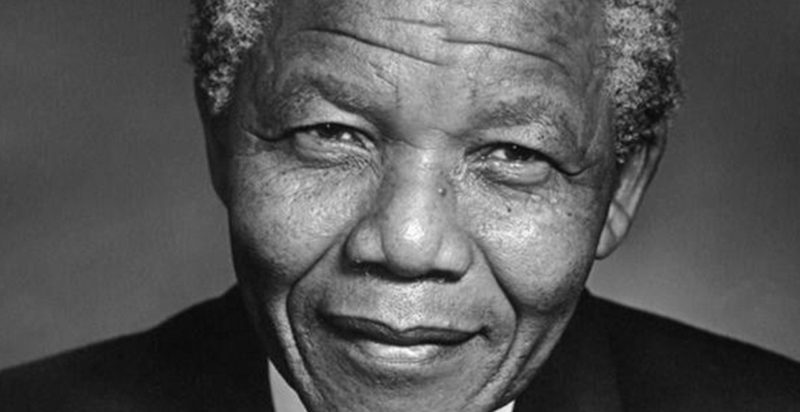
Mandela was arrested in 1962 after a long history of arrests, releases, and bans on public appearances. He was tried for sabotage and high treason, and sentenced to life imprisonment despite numerous international campaigns and vigils held in his name.
It was during this trial that he delivered his famous three-hour speech: I Am Prepared to Die, inspired by Fidel Castro's celebrated History Will Absolve Me.
Liberation and end of apartheid
International pressure following the South African Border War, lack of support from the United States, and severe accusations of state terrorism over the South African government inevitably led to a transitional period and the end of the racist regime.
This process, which started in 1989, witnessed the release of Mandela and the legalization of the ANC, marking a turning point on the road to a new South Africa.
Mandela's presidency of South Africa
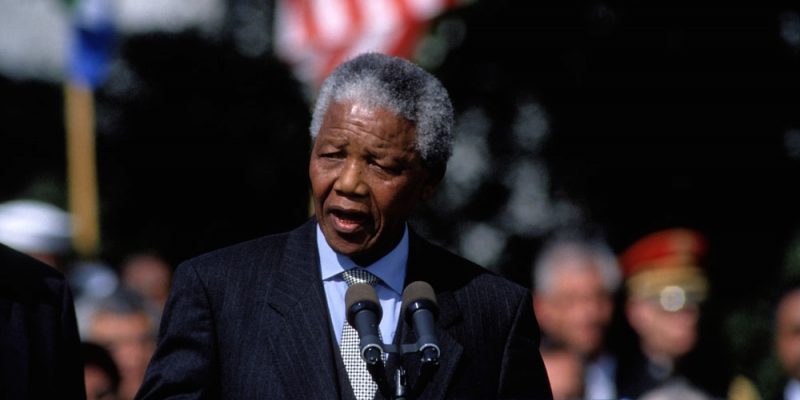
For the first time in its history, and as a result of a strenuous negotiation process, in 1994 the South African population prepared for general elections with no distinction of race among its voters.
In the 1994 election, the candidate on the ANC side was Mandela, whose campaign was based on national reconstruction and overcoming the hostilities that accompanied the elections.
Radical groups such as COSAG, an extremist Afrikaner group, and AWB, a white supremacist group, detonated two car bombs during the polls, killing 20 people.
The ANC emerged victorious with 62% of the total votes, and thus Mandela became president in 1994.
Political ideology of Nelson Mandela
Mandela's ideology was African nationalism, the root of the ANC, but he also advocated social democracy.
Among his influences were various leftist ideologies, such as Marxism and scientific socialism. He always declared himself an enemy of capitalism, private land ownership, and the power of large international funds. To many, nevertheless, Mandela had a clearly communist affiliation.
Awards and honors to Nelson Mandela
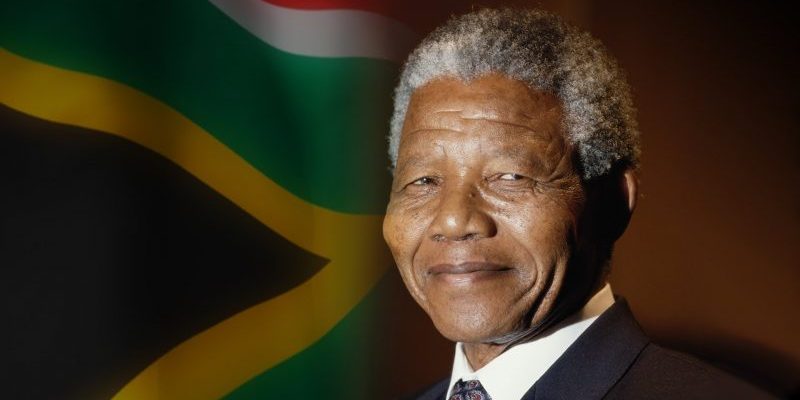
Mandela was awarded the Nobel Peace Prize in 1993, in addition to countless other awards in recognition of his efforts to reunify South Africa and prevent racial hatred and revenge from guiding his government and destroying the possibility of coexistence.
In 2004, Johannesburg granted him the Freedom of the City, and in 2013, during the celebration of South African Reconciliation Day, a 9-meter bronze statue was unveiled in his honor at Union Buildings.
He received countless national and international decorations, which consecrated his figure and his ideals as a role model for humanity, in the pursuit of a world free of injustice.
Leadership qualities of Nelson Mandela
Mandela's leadership is recognized for the following remarkable qualities:
- Persuasion skills. Mandela was a great orator who knew how to convey the national sentiment in his speeches, and understood the ideal way to address a conflict-ridden and divided nation, in order to allow for possible reconciliation.
- Perseverance. Despite being imprisoned for 27 years, he never ceased to promulgate his ideas and continued to prepare himself for the monumental task of ending apartheid.
- Loyalty. Mandela never betrayed his ideals or abandoned his fellow fighters, even when facing unfair trials and accusations that eventually led to his arrest and sentence.
Values and virtues of Nelson Mandela
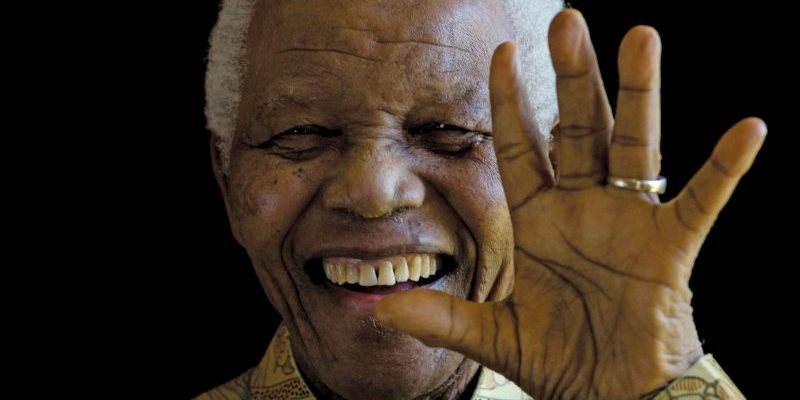
Mandela practiced social Christianity, which made him particularly sensitive to the sufferings of people and to the virtues of tolerance, acceptance of difference, and forgiveness (suffice to say, he did not seek revenge on those who imprisoned him for 27 years), as well as to the values of equality, fraternity, fair and equitable distribution of wealth, and commitment to social welfare.
Death of Nelson Mandela
Nelson Mandela died at the age of 95, on December 5, 2013. Ten days of national mourning were proclaimed in South Africa, and his remains lay in state between December 11 and 13, being visited by over 90 high-ranking international representatives who traveled to pay tribute to him.
Explore next:
Was this information useful to you?
Yes NoThank you for visiting us :)